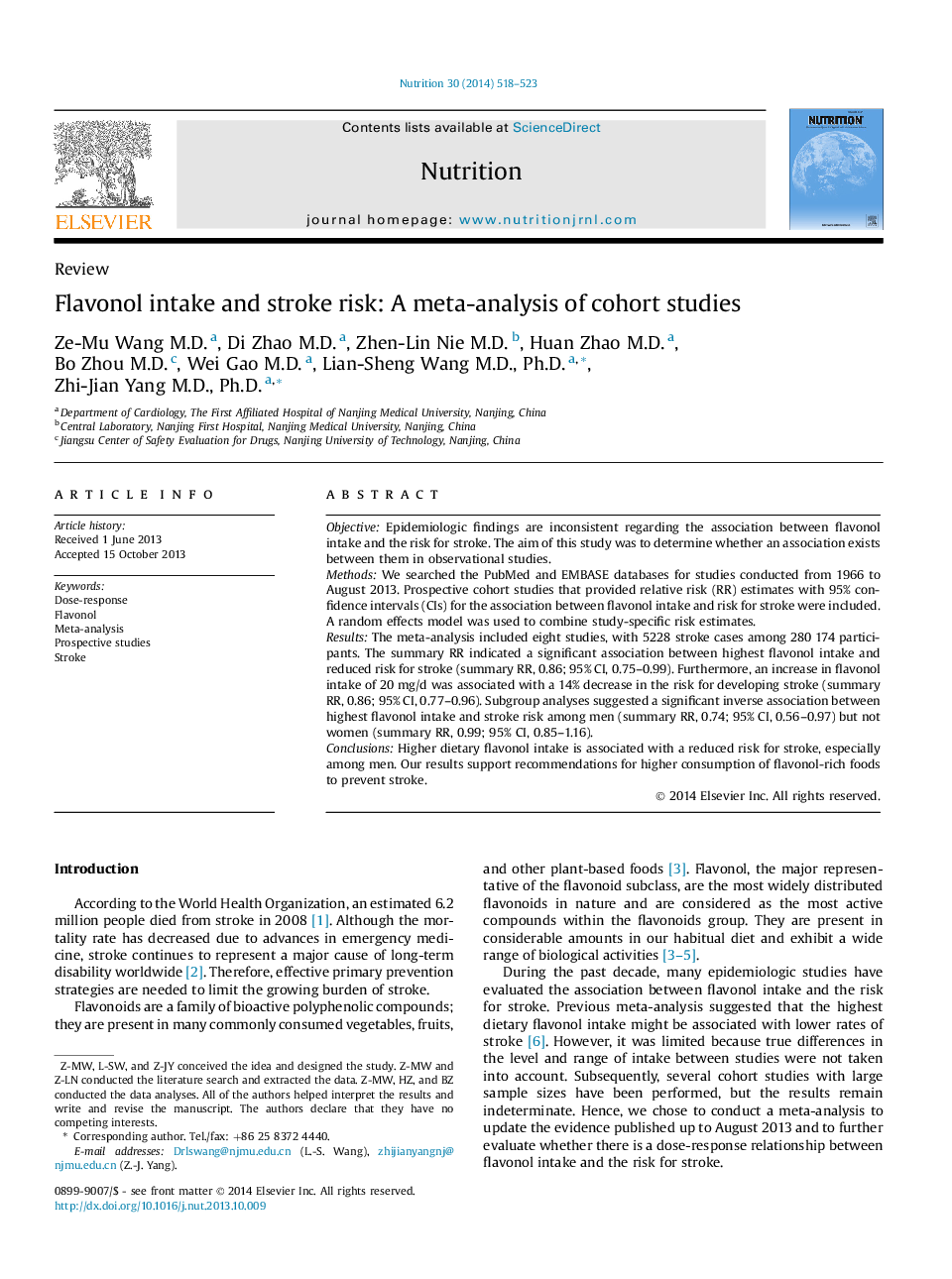| کد مقاله | کد نشریه | سال انتشار | مقاله انگلیسی | نسخه تمام متن |
|---|---|---|---|---|
| 6089652 | 1208548 | 2014 | 6 صفحه PDF | دانلود رایگان |
ObjectiveEpidemiologic findings are inconsistent regarding the association between flavonol intake and the risk for stroke. The aim of this study was to determine whether an association exists between them in observational studies.MethodsWe searched the PubMed and EMBASE databases for studies conducted from 1966 to August 2013. Prospective cohort studies that provided relative risk (RR) estimates with 95% confidence intervals (CIs) for the association between flavonol intake and risk for stroke were included. A random effects model was used to combine study-specific risk estimates.ResultsThe meta-analysis included eight studies, with 5228 stroke cases among 280 174 participants. The summary RR indicated a significant association between highest flavonol intake and reduced risk for stroke (summary RR, 0.86; 95% CI, 0.75-0.99). Furthermore, an increase in flavonol intake of 20 mg/d was associated with a 14% decrease in the risk for developing stroke (summary RR, 0.86; 95% CI, 0.77-0.96). Subgroup analyses suggested a significant inverse association between highest flavonol intake and stroke risk among men (summary RR, 0.74; 95% CI, 0.56-0.97) but not women (summary RR, 0.99; 95% CI, 0.85-1.16).ConclusionsHigher dietary flavonol intake is associated with a reduced risk for stroke, especially among men. Our results support recommendations for higher consumption of flavonol-rich foods to prevent stroke.
Journal: Nutrition - Volume 30, Issue 5, May 2014, Pages 518-523
